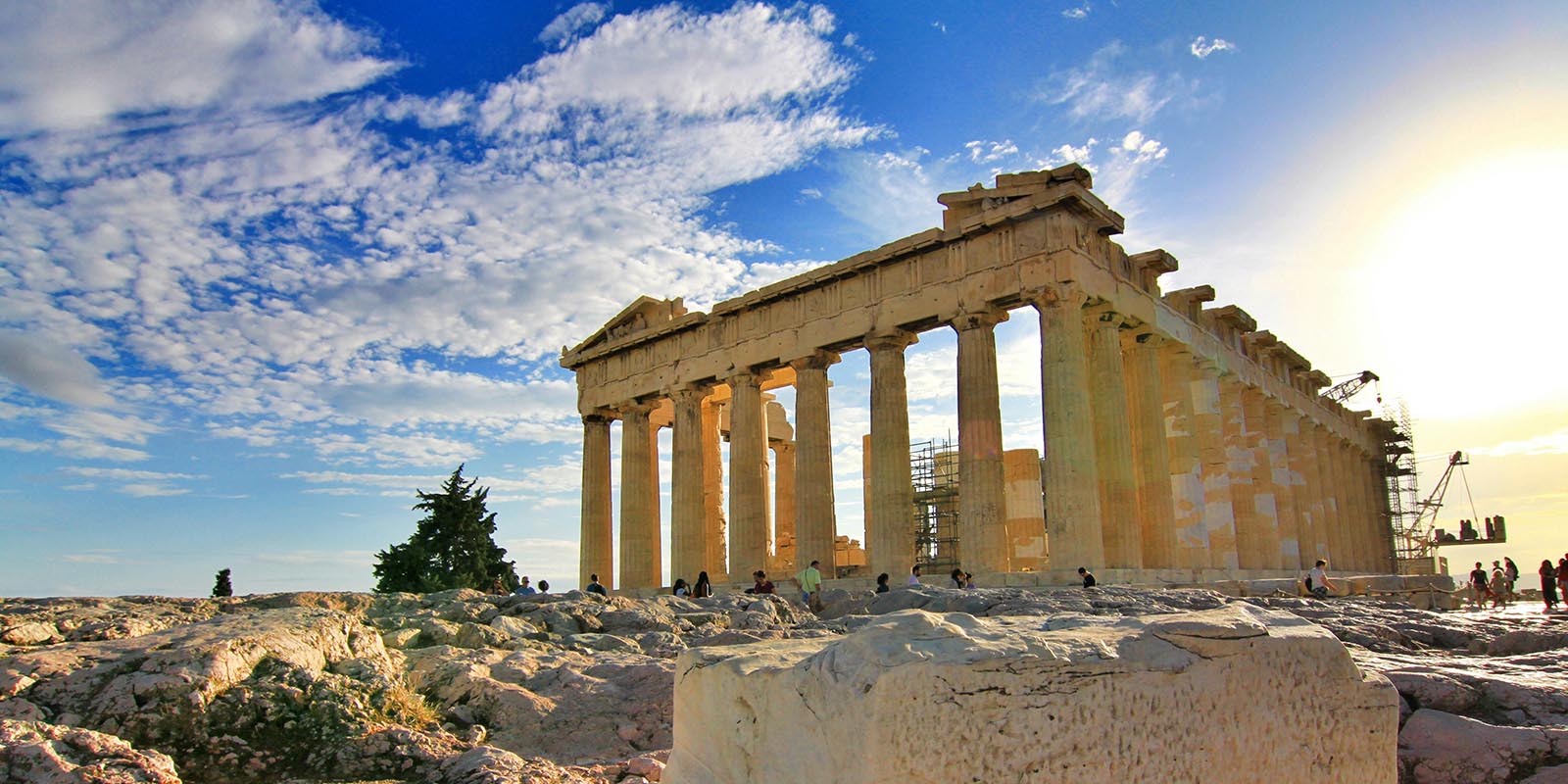

It was in the eighth century that Greek society underwent rapid changes and emerged from the Dark Age into the renaissance of the Archaic period. It was a period during which the Greek state changed rapidly in its constitution and character.
The key element of this renaissance is the formation of the community known as the ‘polis’. This was a community with its own political organisation and translates as ‘city-state’. The history of Greece between 700 and 400 BC was primarily the history of city-states for they were the main makers of Greek history. At the beginning of the Archaic period, the Greeks were still a relatively isolated and economically backward people, organised politically in low-level chiefdoms. By the late sixth century, they lived in a culturally advanced state-society that had spread across the entire Mediterranean zone, and they were major players in the complex international economy. The ‘polis’ had evolved from a narrow oligarchy to tyranny to a more broadly based polity in which the majority of male citizens participated in its governance. Civic pride was the cement of the city state and was largely responsible for the cultural flowering of the Archaic Period.
| Date | Event |
|---|---|
| 750-720 BC | Homer’s “Iliad” and “Odyssey” composed |
| 700 BC | Hesiod, period of lyric poetry begins |
| 743-724 BC | Sparta: First Messenian War |
| 685-668 BC | Sparta: Second Messenian War |
| 600 BC | Beginnings of science and philosophy (the ‘Presocratics’) |
| 621/0 BC | The Law Code of Draco |
| 594 BC | Archonship and legislation of Solon |
| 582/1 BC | Delphi: Beginning of Pythian Games |
| 561/0 BC | First coup of Pisistratus |
| 559-530 BC | Persia: Reign of Cyrus II |
| 556 BC | Second coup of Pisistratus |
| 546 BC | Lydia: Croesus overthrown by Persians |
| 546-510 BC | Third coup of Pisistratus and establishment of tyranny |
| 530-522 BC | Persia: Reign of Cambyses |
| 522-486 BC | Persia: Reign of Darius I |
| 507 BC | Cleisthenes institutes political reforms in Athens |
| 499-494 BC | Unsuccessful revolt of Ionians against Persian rule |
| 490 BC | First Persian invasion of Greece defeated at Marathon |
| 487 BC | First ostracism (Hipparchus son of Charmus). Athenians choose their chief magistrate (archon) by lot |
| 486-465 BC | Persia: Reign of Xerxes |
| Start Date | 750 BC |
|---|---|
| End Date | 480 BC |

During the Archaic period, the Greeks developed the concept of democracy in the city-state of Athens, allowing citizens to participate in decision-making—a foundational step toward modern democratic systems.
Ancient Greek art and architecture, with its harmonious proportions and timeless elegance, continue to inspire awe and admiration millennia later.
Discover
Greek mythology, a rich tapestry of gods, heroes, and mythical creatures, captivates the imagination with its tales of love, betrayal, and epic adventures that delve into the depths of the human psyche.
Discover
Ancient Greek history, marked by remarkable achievements in democracy, philosophy, and warfare, shaped the foundation of Western civilization, leaving an indelible legacy of innovation and cultural influence that continues to resonate to this day.
Discover
The ancient Greek Olympics, held in Olympia every four years, celebrated athleticism, unity, and cultural pride, serving as a testament to the enduring spirit of competition and excellence that transcends time and borders.
Discover
Ancient Greek wars, such as the Persian Wars and the Peloponnesian War, were pivotal conflicts that shaped the course of history, highlighting the struggle for power, independence, and the clash of civilizations in the ancient Mediterranean world.
Discover
Ancient Greek culture and society, characterized by its emphasis on art, philosophy, and civic engagement, fostered a vibrant intellectual and social landscape where innovation flourished, democracy thrived, and the pursuit of knowledge and excellence was celebrated as fundamental values of civilized life.
Discover
Find out more about ancientgreece.com